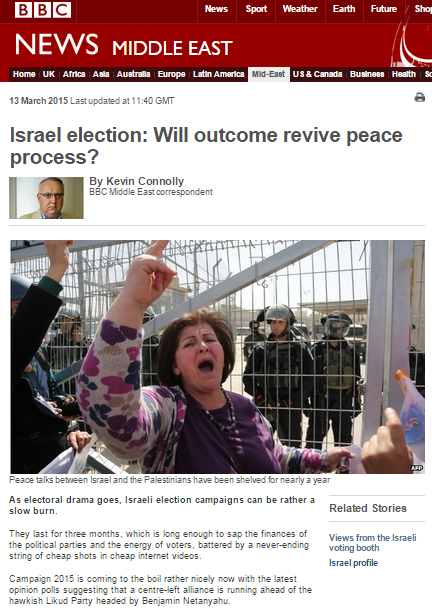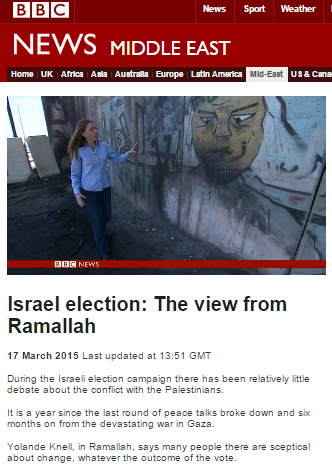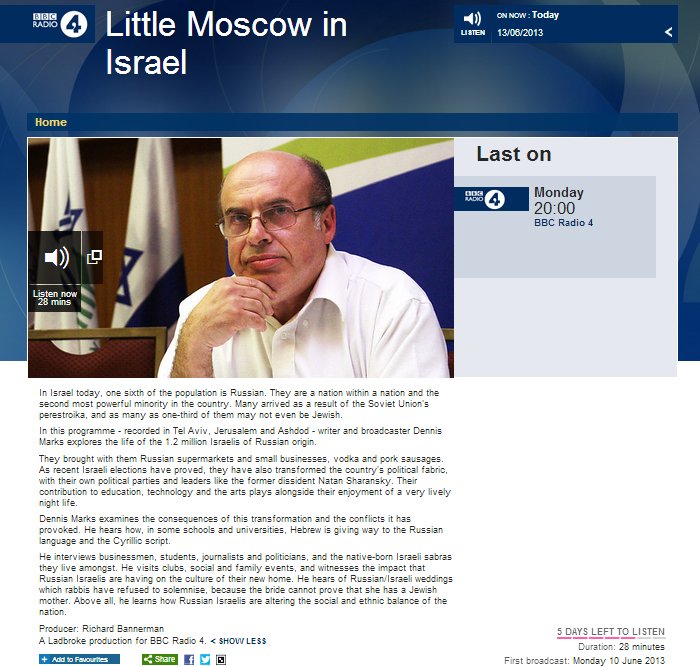Despite a very lively campaign that has so far included the dismantling of previous alliances, the registration of numerous new parties and the standing down of some veteran Israeli politicians, BBC reporting on Israel’s upcoming April 9th general election has to date been confined to a report about the announcement of the election and a mention in a subsequent BBC Radio 4 programme which ignored that announcement.
Before the BBC’s Jerusalem bureau commences coverage of the 2019 election it is worth taking a look at its record of reporting on previous Israeli elections.
In the 2013 election the BBC’s reporting focused predominantly on one side of the political map and presented Israel as a country lurching rightward while depicting that perceived shift as the sole reason for the predicted failure to make progress in the peace process. When that predicted lurch to the right did not happen, some furious backtracking ensued and as was noted here at the time:
“Most blatantly obvious is the fact that the BBC’s insistence upon framing this election almost exclusively in terms of the potential effect of its results on ‘the peace process’ reflects its own institutional attitude towards that subject, both in terms of its perceived importance and in terms of the curious notion that only what Israel does has any effect upon that process’ chances.”
In coverage of the 2015 election BBC audiences once again saw the corporation focus on the topic of the ‘peace process’.
“Connolly’s article frames the fate of the ‘peace process’ as being entirely dependent upon political developments on one side of the negotiating table. That portrayal is not only obviously absurd but it actually hinders audience understanding of the fact that the reason why that topic is not a major campaign issue in this election is precisely because the majority of Israelis understand that progress on that issue is not dependent on their government alone.”
As had been previously seen in 2013, BBC coverage of the 2015 Israeli elections bizarrely included a remarkable number of interviews with Palestinian commentators and in fact audiences heard and read more commentary on the Israeli election from Palestinian contributors than they did from Israeli candidates standing for election.
“The most outstanding characteristic of BBC reporting on the 2015 Israeli election from day one was the insistence of its journalists on framing the story from the angle of its effect on negotiations with the Palestinians – despite the fact that other concerns were much higher up on voters’ lists of priorities. So, whilst BBC audiences heard or read occasional brief references to ‘economic issues’, ‘the cost of living’ and ‘house prices’, they were never actually provided with any in-depth background information on those topics and hence were incapable of appreciating why – for example – a previously non-existent party (Kulanu) won ten seats in the incoming Knesset.”
Whether or not in the coming weeks BBC journalists will produce any reporting that informs audiences about the full range of issues that concern Israeli voters in the April general election remains to be seen but if its previous record is anything to go by, it seems likely that the corporation will continue to promote the facile and narrative-driven portrayal of the ‘peace process’ as being entirely dependent upon the paper placed in the ballot box by Israeli voters.
Related Articles:
Elections 2015 – a postscript on BBC framing of Israeli elections over 23 years




